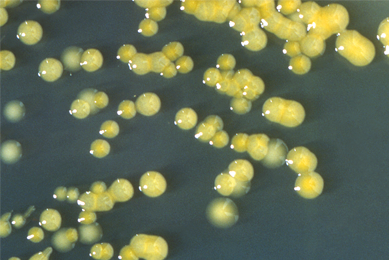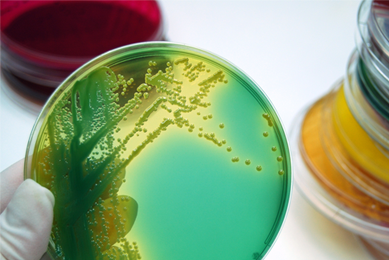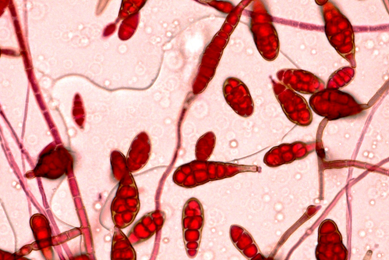Ensure the efficacy of antimicrobial preservatives for product safety
Antimicrobial preservatives are added to aqueous pharmaceutical products to inhibit or kill microorganisms that may have been inadvertently introduced during the manufacturing process or subsequently during repeated withdrawals of the product. Because antimicrobial agents can be inherently toxic, knowing the concentration of the preservative that both inhibits microbial growth while not causing adverse affects on human health is essential.
To evaluate the efficacy of added antimicrobial preservatives, or the inherent antimicrobial properties of a product, pharmaceutical manufacturers perform Antimicrobial Effectiveness Testing as defined in United States Pharmacopeia <51> (harmonized with European Pharmacopoeia 5.1.3 and Japanese Pharmacopoeia 19). This compendial test defines the methodology and recommended test microorganisms for use in preservative challenge testing. The five challenge organisms listed are those required for the test; however, supplemental species can also be evaluated if deemed useful for measuring the biological activity of a specific product's preservative system.
USP <51> lists these organisms for testing
Conveniently order these strains as a panel
Why ATCC is a recommended source for quality control strains
ATCC is a trusted scientific resource that is committed to raising the standards for credibility in the life sciences. As an ISO 9001 certified and ISO/IEC 17025 accredited organization, you can trust that our microbial cultures are carefully authenticated, managed, and preserved using protocols that maintain the genotype and phenotype. At the heart of our preservation protocols is the seed stock concept. We utilize this methodology to ensure that our preserved cultures remain as close as possible to the original culture. This preservation method maintains these materials in a manner that permits reproducibility of results and ensures that our strains are minimally passaged, thus reducing the likelihood of contamination, genetic drift, mutation, and phenotypic variation.
Our microbial strains are authenticated and fully characterized using a polyphasic approach that elucidates both phenotypic and genotypic traits. Our comprehensive authentication process includes a variety of analyses such as morphology characterization, biochemical testing, MALDI-TOF MS, and whole-genome sequencing. What's more, in an effort to ensure the best quality for our authentication procedures, we are constantly evaluating and adopting novel methods and instrumentation that demonstrate improved levels of sensitivity and specificity.
Explore our related resources
 White paper
White paper
Microbiological Quality Control of Pharmaceutical Products
To ensure product safety, pharmaceutical companies must be versed in the important role of microbiological testing in product research and development, process validation, manufacturing, and quality control. Read this white paper to learn how ATCC supports the maintenance of product integrity, reputation, and safety by providing top-quality, fully characterized strains in a ready-to-use, familiar format.
More Culture guide
Culture guide
Bacteriology Culture Guide
Get expert tips on culturing bacteria including essential information about bacterial growth, propagation, preservation, and application.
More Culture guide
Culture guide
Mycology Culture Guide
Get a detailed mycology guide on the growth, handling, propagation, preservation, and application of yeasts and filamentous fungi.
More